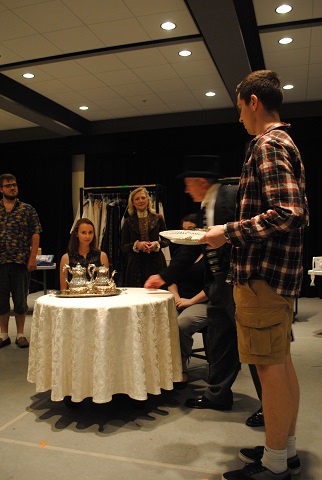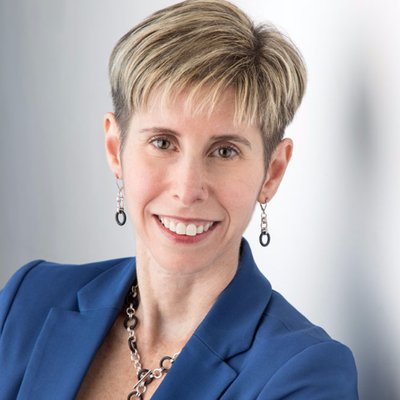“Repertory theatre in practice” is an innovative new summer field course offered by U of T Mississauga’s department of English and Drama that provides students with behind-the- scenes experience at the Shaw Festival. With its Niagara-on- the-Lake location, the second-largest repertory theatre company in North America is almost in U of T’s backyard.
Premiering last July with 19 students, the 1o-day course is open to second-, third- and fourth-year students. They not only dive into literature and history, but also learn about the repertory system of theatre production, which involves performing multiple plays at once, with actors playing parts in more than one production, and using commercially viable shows to fund the development of new plays.

Last summer’s students spent each day learning directly from actors, directors, designers and administrators. They were able to interview Shaw dramaturges (writers who adapt plays to fit the logistics of a particular company), and Shaw associate director Eda Holmes led them in activities such as a scene study and staged readings. The students also learned from a theatre historian about the festival’s evolution, and saw five Shaw productions.
“We have a unique opportunity right on our doorstep to acquaint students with the greatest English-language plays on Earth, and then to let them learn from and with the people they’ve just been watching on stage,” says professor Lawrence Switzky, who organized the course. “In exchange, the students energize the company with their passion, their skepticism and their curiosity.” The course, which is running again this summer, has three costs: a half-course tuition fee; a $350 laboratory fee for additional instructional and transportation expenses and theatre tickets; and $45 per night for lodging.

What enhanced the course, Switzky says, were the many informal conversations students had with artists, such as veteran Shaw performer Fiona Reid, who he says made time to offer personalized career advice to each student. Another unscripted learning experience occurred when Holmes conducted mock auditions with the students, which participant Laura McCallum found particularly helpful.
“She talked to us about what to wear and what to say, and we all got to practise walking into a room and introducing ourselves. It was such a great nugget to get out of someone who casts the shows,” says McCallum, who just graduated from the UTM Theatre and Drama Studies program. Another big highlight, she says, was talking one-on-one with those responsible for marketing, public outreach and actor scheduling at the festival.
“I had no intention to become an actor when I started in the UTM theatre program, but I wanted to work in theatre,” McCallum says. “This opened my eyes to so many administrative roles I didn’t even know existed, and that without them the Shaw doesn’t happen. So it helped me secure some new goals.”
Recent Posts
People Worry That AI Will Replace Workers. But It Could Make Some More Productive
These scholars say artificial intelligence could help reduce income inequality
A Sentinel for Global Health
AI is promising a better – and faster – way to monitor the world for emerging medical threats
The Age of Deception
AI is generating a disinformation arms race. The window to stop it may be closing





